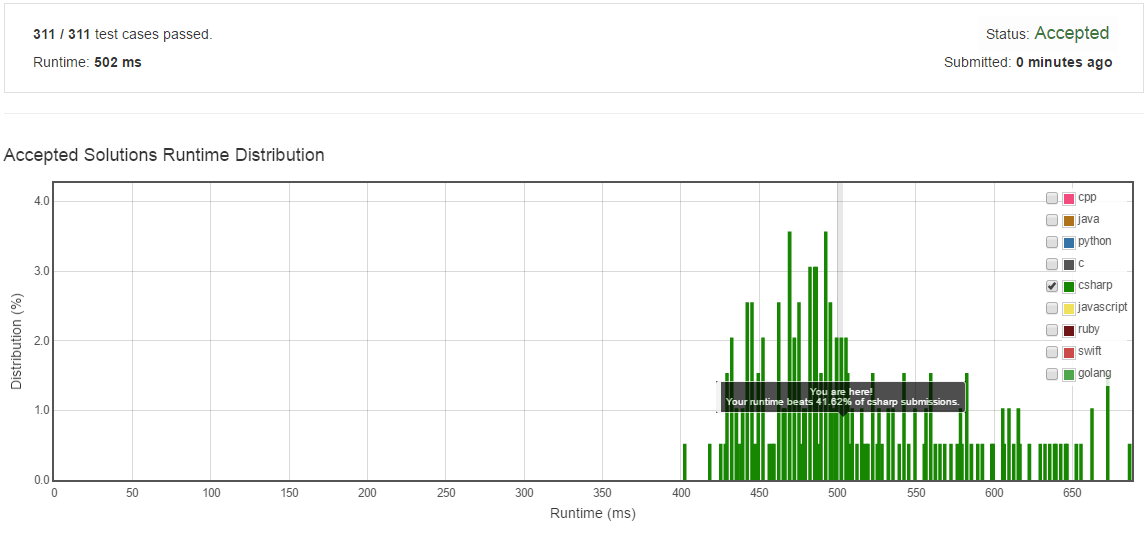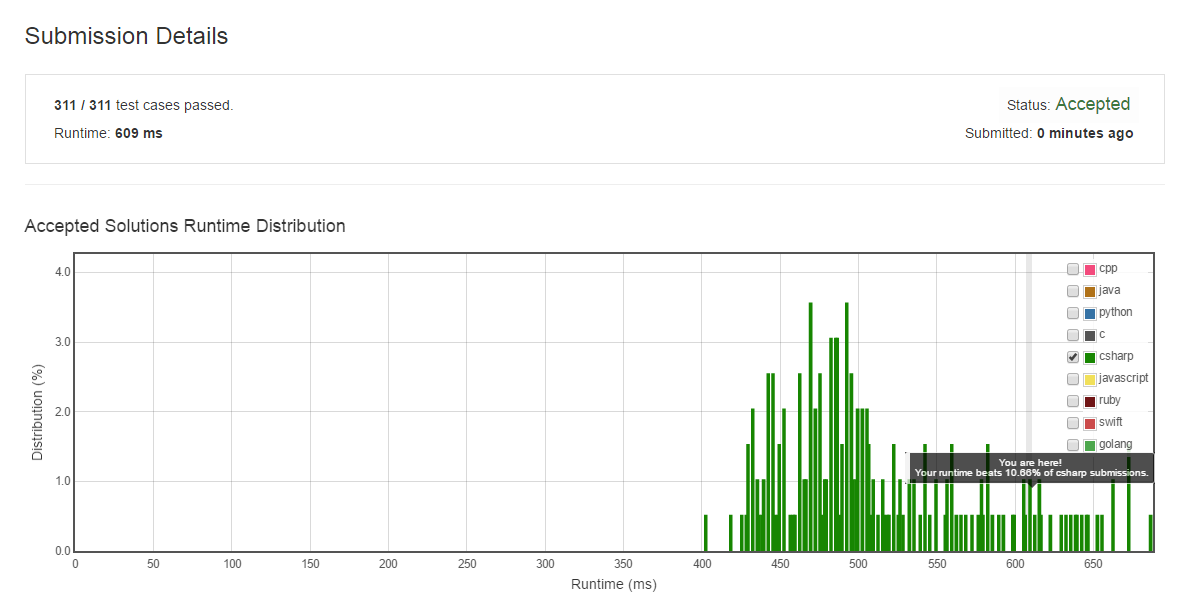Given an array
Sofnintegers, are there elementsa,b,cinSsuch thata + b + c = 0? Find all unique triplets in the array which gives the sum of zero.Note: The solution set must not contain duplicate triplets.
For example, given array
S = [-1, 0, 1, 2, -1, -4], a solution set is:[ [-1, 0, 1], [-1, -1, 2] ]
I did review Leetcode 3 sum algorithm a few hours, and put together the following C# code. The time complexity is optimal, \$O(n*n)\$ where \$n\$ is the length of the array, pass Leetcode online judge. Also, I did a few improvements, make it more flat (using two continue statements, instead of if/else statements), test cases are added, two sum algorithm uses two pointer technique to go through the array once.
Please share your ideas to improve C# code.
using System;
using System.Collections.Generic;
using System.Diagnostics;
using System.Linq;
using System.Text;
using System.Threading.Tasks;
namespace Leetcode_15_3Sum
{
/*
*
* Work on this 3 sum algorithm
*
* Leetcode 15: 3 sum
* https://leetcode.com/problems/3sum/
*
* Given an array S of n integers, are there elements a, b, c in S
* such that a + b + c = 0? Find all unique triplets in the array
* which gives the sum of zero.
*
Note:
Elements in a triplet (a,b,c) must be in non-descending order. (ie, a ≤ b ≤ c)
The solution set must not contain duplicate triplets.
*
For example, given array S = {-1 0 1 2 -1 -4},
A solution set is:
(-1, 0, 1)
(-1, -1, 2)
*
*/
class Program
{
static void Main(string[] args)
{
// test 3 sum
// 2 lists, one is -1, 0, 1, second one is -1, -1, 2
int[] array = new int[6] { -1, 0, 1, 2, -1, -4 };
IList<IList<int>> triplets = ThreeSum(array);
Debug.Assert(triplets.Count == 2);
Debug.Assert(String.Join(",", triplets[0].ToArray()).CompareTo("-1,-1,2") == 0);
Debug.Assert(String.Join(",", triplets[1].ToArray()).CompareTo("-1,0,1") == 0);
}
/*
* @nums - the array containing the numbers
*
* 3 sum can be solved using 2 sum algorithm,
* 2 sum algorithm - optimal solution is using two pointers, time complexity is O(nlogn),
* sorting takes O(nlogn), and two pointer algorithm is O(n), so overall is O(nlogn).
* Time complexity for 3 sum algorithm:
* O(n*n)
*/
public static IList<IList<int>> ThreeSum(int[] nums)
{
IList<IList<int>> results = new List<IList<int>>();
HashSet<string> keys = new HashSet<string>();
if (nums == null || nums.Length == 0)
return results;
Array.Sort(nums);
int length = nums.Length;
int target = 0;
for (int i = 0; i < length - 2; i++)
{
int firstNo = nums[i];
// using two pointers to go through once the array, find two sum value
int newTarget = target - firstNo;
int start = i + 1;
int end = length - 1;
while (start < end)
{
int twoSum = nums[start] + nums[end];
if (twoSum < newTarget)
{
start++;
continue;
}
if (twoSum > newTarget)
{
end--;
continue;
}
int[] threeNumbers = new int[] { firstNo, nums[start], nums[end] };
string key = PrepareKey(threeNumbers, 3);
if (!keys.Contains(key))
{
keys.Add(key);
results.Add(threeNumbers.ToList());
}
// continue to search
start++;
end--;
}
}
return results;
}
/*
* -1, 0, 1 -> key string" "-1,0,1,"
*/
private static string PrepareKey(int[] arr, int length)
{
string key = string.Empty;
for (int j = 0; j < length; j++)
{
key += arr[j].ToString();
key += ",";
}
return key;
}
}
}



[-1, 0, 1],and[1, 0, -1],considered duplicates ? \$\endgroup\$